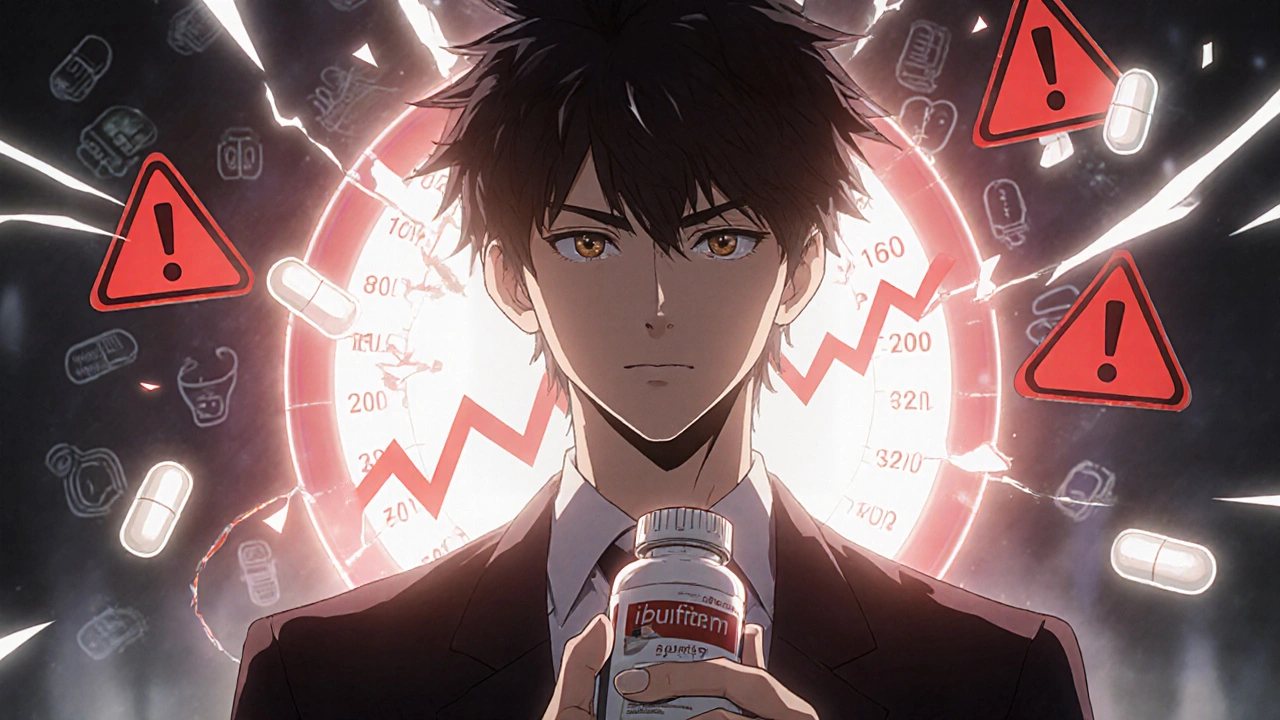
Hypertension Medication Interaction Checker
Check Your Medication Safety
This tool checks for dangerous interactions between your blood pressure medications and common over-the-counter drugs, supplements, and other medications. Based on information from the American Heart Association and hypertension specialists.
Results
High blood pressure affects nearly half of all adults in the U.S., and most people managing it take one or more medications daily. But what many don’t realize is that these medications don’t work in isolation. Even something as simple as an over-the-counter pain reliever can undo weeks of careful blood pressure control-or worse, trigger a dangerous medical event.
How Common Are Drug Interactions With Blood Pressure Medications?
One in four hypertensive patients on multiple medications experiences a clinically significant drug interaction. That’s not rare. It’s routine. And it’s often invisible until something goes wrong.
Take NSAIDs-common painkillers like ibuprofen or naproxen. They’re in almost every medicine cabinet. But if you’re on an ACE inhibitor, ARB, or diuretic, taking these regularly can raise your systolic blood pressure by 8-12 mmHg. That’s enough to push someone from controlled to dangerously high. In fact, 60-70% of cases of treatment-resistant hypertension are linked to NSAID use, according to hypertension specialists at UT Southwestern.
And it’s not just painkillers. Antidepressants, statins, even cough syrups and herbal supplements can interfere. The problem grows worse with age. Nearly 40% of adults over 65 with high blood pressure take five or more medications. More pills mean more chances for something to clash.
Top Dangerous Interactions You Need to Know
Some interactions are well-documented. Others catch even doctors off guard. Here are the most dangerous ones you should never ignore.
NSAIDs and ACE Inhibitors/ARBs/Diuretics
NSAIDs block enzymes that help your kidneys manage fluid and salt. When you take them with ACE inhibitors or ARBs, your kidneys can’t respond properly to the medication’s signal to relax blood vessels. The result? Blood pressure climbs. Diuretics become less effective. Fluid builds up. Within 48 hours of starting an NSAID, systolic pressure can jump by 8-10 mmHg.
This isn’t theoretical. Emergency room data shows 12% of adverse drug events in hypertensive patients involve NSAIDs. And 78% of those cases involve common OTC drugs like Advil or Aleve.
Calcium Channel Blockers and Statins
If you’re taking amlodipine or diltiazem for blood pressure and simvastatin for cholesterol, you’re at risk. These drugs compete for the same liver enzyme (CYP3A4). When they’re taken together, simvastatin levels can spike by 77%. That dramatically increases your chance of rhabdomyolysis-a condition where muscle tissue breaks down and floods your kidneys with toxic proteins.
The FDA responded by limiting simvastatin to 10 mg daily when used with these blood pressure drugs. Many patients don’t know this. Their doctor prescribed the statin before the blood pressure med was added-and no one ever checked for overlap.
Beta-Blockers and Antidepressants
Beta-blockers like metoprolol or propranolol are common, but they’re also among the most interaction-prone drugs. When paired with tricyclic antidepressants (like amitriptyline), they can cause dangerous drops in blood pressure when standing up. This leads to dizziness, falls, and fractures-especially in older adults. Studies show this combination increases fall risk by 35%.
Even SSRIs like fluoxetine can interfere. In people with a genetic variant called CYP2D6 poor metabolizer, fluoxetine can cause metoprolol levels to rise by 30-40%. That means slower heart rate, fatigue, and possible fainting.
ACE Inhibitors and Potassium Supplements
Many people with high blood pressure are told to reduce salt. So they reach for salt substitutes-often made with potassium chloride. Sounds healthy, right? But if you’re on an ACE inhibitor or ARB, your body already holds onto more potassium. Add a supplement, and your blood potassium can spike to dangerous levels (above 5.0 mEq/L).
Hyperkalemia can cause irregular heart rhythms. In severe cases, it leads to cardiac arrest. About 25-30% of patients on ACE inhibitors who take potassium supplements or high-potassium salt substitutes show clinically significant elevations. Monitoring isn’t optional-it’s life-saving.
Amiodarone and Simvastatin/Warfarin
Amiodarone, used for irregular heart rhythms, is a notorious drug interaction culprit. When taken with simvastatin above 20 mg, rhabdomyolysis risk increases five to seven times. With warfarin, it reduces the drug’s effect by 30-40%, raising stroke risk. Patients on amiodarone need frequent INR checks and statin dose adjustments-yet many are never warned.
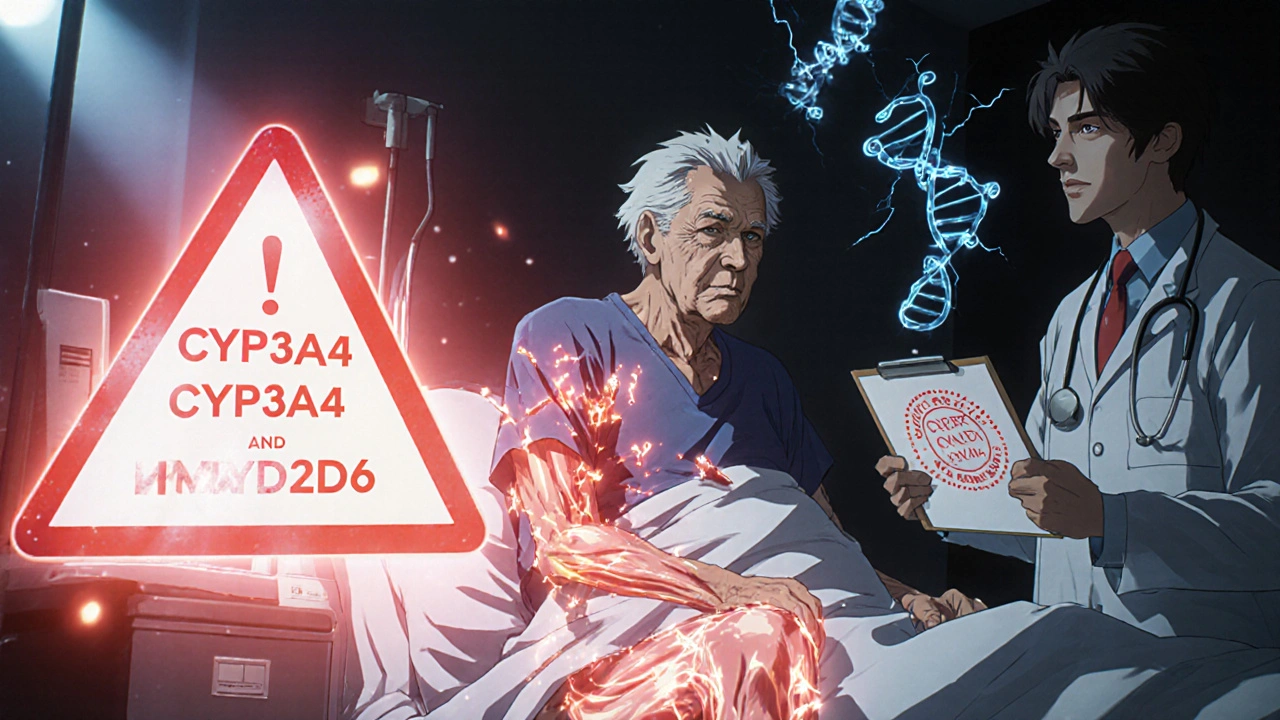
What You Can Do to Stay Safe
Knowing the risks isn’t enough. You need a plan.
- Always tell your doctor and pharmacist about every medication you take-including vitamins, herbs, and OTC pain relievers. Don’t assume they’re harmless.
- Use acetaminophen (Tylenol) instead of NSAIDs for pain. It doesn’t interfere with blood pressure meds and is effective for mild to moderate pain in 85-90% of cases.
- Ask for a medication review. Pharmacists are trained to spot interactions. Studies show pharmacist-led reviews reduce harmful interactions by 40-45%.
- Check your potassium levels if you’re on an ACE inhibitor or ARB. Get tested every 3-6 months, especially if you’re using salt substitutes.
- Don’t ignore side effects. Dizziness, swelling, fatigue, or irregular heartbeat could be signs of an interaction-not just aging.
Why Your Doctor Might Not Mention This
Doctors are pressed for time. A typical visit lasts 15 minutes. They’re focused on getting your blood pressure down. Medication interactions? Often an afterthought.
Surveys show only 38% of primary care providers routinely ask patients about OTC meds during hypertension visits. That’s a gap. And it’s dangerous.
Electronic health records can flag interactions-but they’re noisy. Clinicians get so many alerts that they start ignoring them. One study found that while alerts prevent 60-65% of dangerous combinations, doctors actually follow them only 35-40% of the time.
That means the burden falls on you. You’re the only one who knows everything you’re taking. You’re the only one who can ask the right questions.
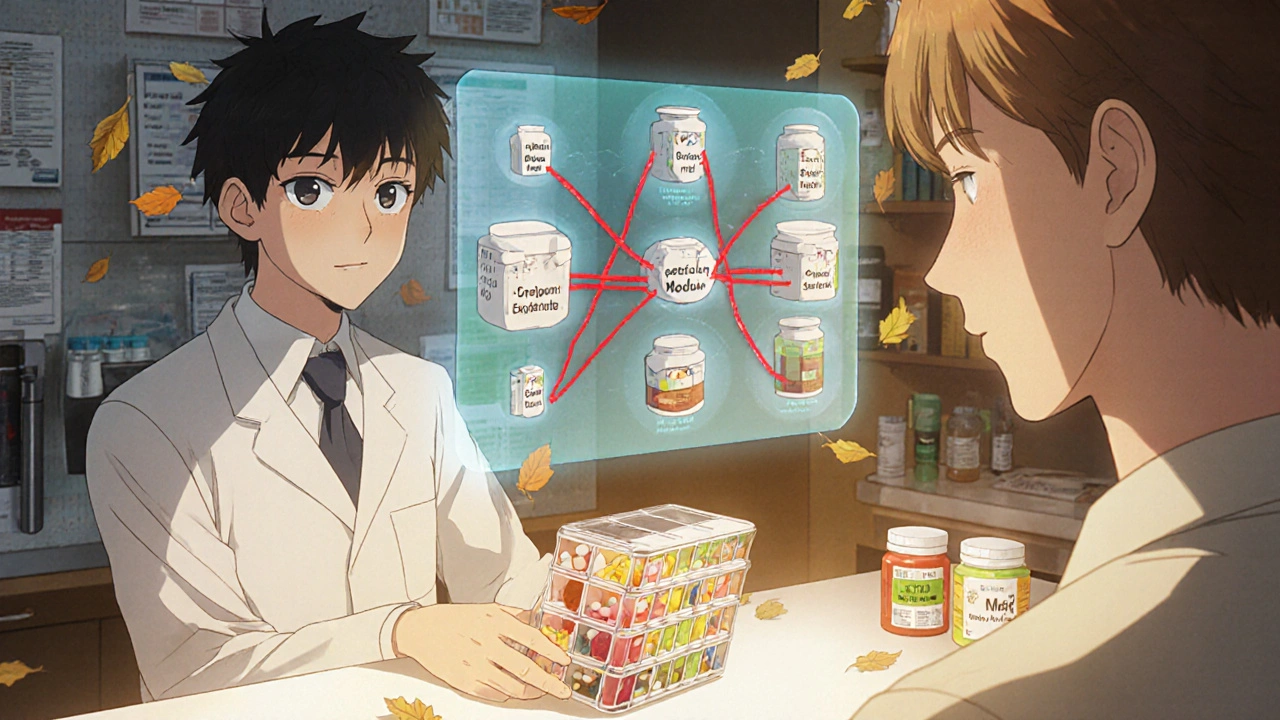
Emerging Solutions: AI, Genetics, and Better Tools
Technology is starting to catch up. The Mayo Clinic’s AI system can predict dangerous interactions with 88% accuracy-far better than standard clinical tools. It’s not widely used yet, but it’s coming.
Genetic testing is also helping. If you’re a CYP2D6 poor metabolizer, your body processes certain beta-blockers and antidepressants differently. Knowing this lets doctors adjust doses before problems start. The FDA now recognizes 17 genetic markers linked to hypertension drug interactions.
And the American Heart Association has set a goal: reduce medication-related hospitalizations from drug interactions by 25% by 2027. That’s a big push. But it won’t happen without patient involvement.
Final Takeaway: Your Meds Aren’t Working in a Vacuum
Hypertension treatment isn’t just about popping a pill. It’s about understanding how everything you take-prescription, OTC, herbal, or supplement-interacts with your blood pressure drugs.
The most effective treatment plan isn’t the one with the most drugs. It’s the one with the fewest dangerous combinations.
If you’re on blood pressure medication, ask yourself: Have I told my doctor about every pill, powder, or drop I take? Have I checked if my pain reliever is safe? Have I had my potassium checked? If you haven’t, you’re not just managing high blood pressure-you’re gambling with it.
Can I take ibuprofen if I have high blood pressure?
It’s not recommended. Ibuprofen and other NSAIDs can raise your blood pressure by 8-12 mmHg and reduce the effectiveness of ACE inhibitors, ARBs, and diuretics. Even occasional use can undo weeks of control. Use acetaminophen (Tylenol) instead for pain relief.
What happens if I take potassium supplements with my blood pressure medicine?
If you’re on an ACE inhibitor or ARB, potassium supplements can cause your blood potassium to rise to dangerous levels. This can lead to irregular heart rhythms or even cardiac arrest. Always get your potassium checked every 3-6 months and avoid salt substitutes high in potassium unless your doctor approves them.
Can statins interact with my blood pressure pills?
Yes. Calcium channel blockers like amlodipine or diltiazem can increase levels of simvastatin in your blood by up to 77%. This raises your risk of muscle damage (rhabdomyolysis). If you’re on both, your statin dose may need to be lowered to 10 mg daily or switched to a safer alternative like pravastatin or rosuvastatin.
Why do my blood pressure meds seem less effective lately?
You may be taking something that interferes. NSAIDs, decongestants, certain antidepressants, and even herbal supplements like licorice root can reduce the effect of your meds. Track everything you take-prescription and over-the-counter-and bring it to your doctor. A simple interaction could be the cause.
Should I get a medication review from a pharmacist?
Yes. Pharmacists specialize in drug interactions and can spot problems your doctor might miss. Studies show pharmacist-led reviews reduce harmful interactions by 40-45%. Ask your pharmacy if they offer a free medication review-you have nothing to lose and your health to gain.
Write a comment
Your email address will not be published.
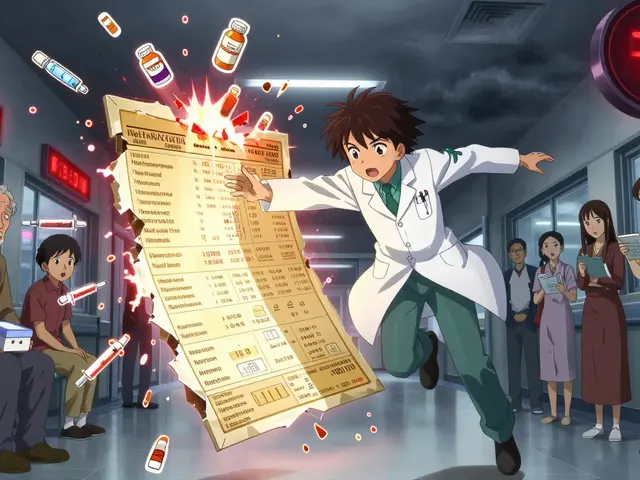
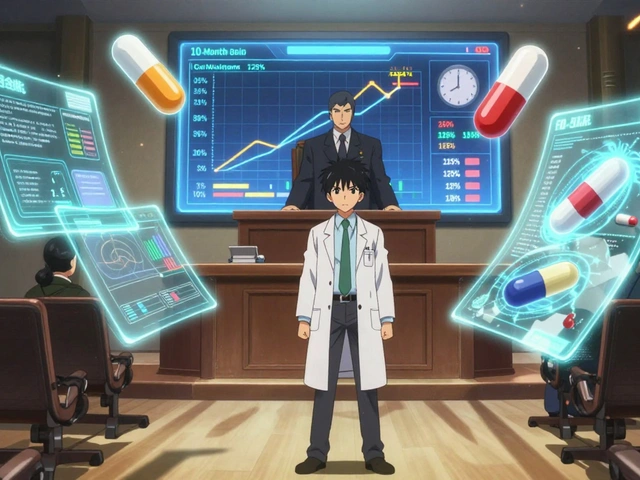
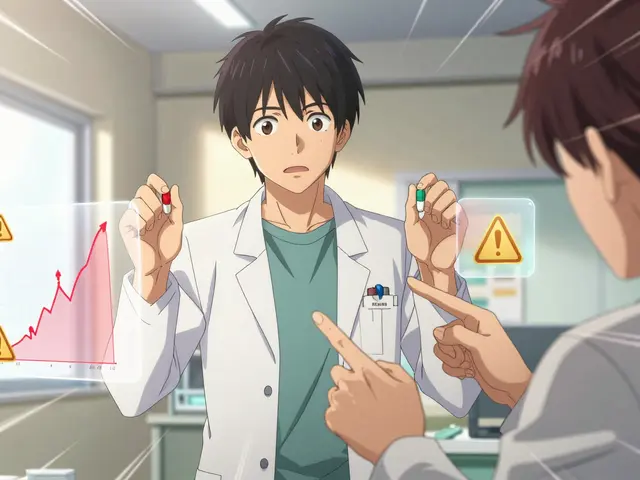
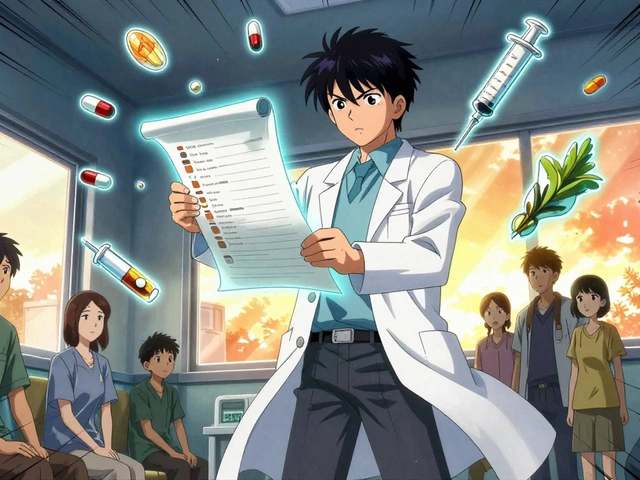
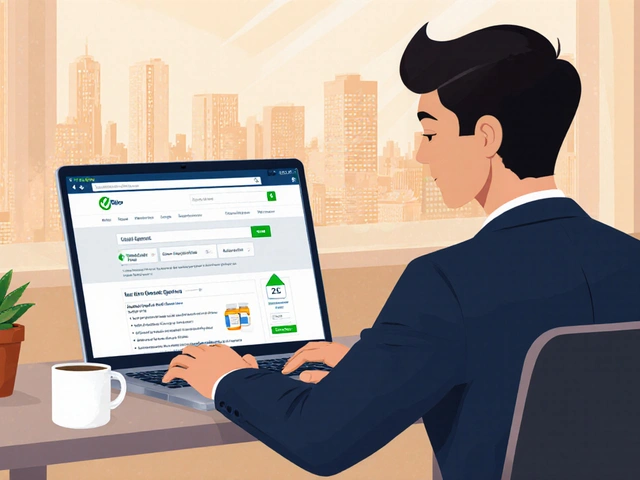
10 Comments
I never realized how many things I was taking could mess with my blood pressure meds. I’ve been popping ibuprofen for headaches like it’s candy-turns out I’ve been sabotaging my own treatment. Time to switch to Tylenol and get that pharmacist review they mentioned.
Let’s be clear: if you’re on an ACE inhibitor and taking potassium supplements or salt substitutes without monitoring, you’re playing Russian roulette with your heart. This isn’t ‘maybe dangerous’-it’s documented, preventable, and statistically lethal. Stop guessing. Get tested.
It’s important to recognize that the burden of medication safety has been unfairly shifted onto the patient. While individual vigilance is necessary, the systemic failure lies in fragmented care, inadequate provider training, and overburdened electronic health record systems that generate more noise than actionable insight. We must demand better integration between pharmacy, primary care, and specialist services-not just rely on patients to become pharmacologists in their own right.
Moreover, the notion that ‘your doctor doesn’t have time’ is a symptom of a broken healthcare model, not an excuse. If we truly value patient outcomes, we must fund and incentivize structured medication reconciliation visits-not just treat hypertension as a checkbox.
Oh wow, so I’m not just old-I’m a walking drug interaction waiting to happen? Thanks for the reassurance. I take 11 pills a day, a salt substitute, and Advil for my ‘bad knee’-and now I’m supposed to panic because some study says I’m one ibuprofen away from cardiac arrest? What’s next? A pamphlet on how my coffee is secretly killing me?
Actually, in India, we don’t even use simvastatin anymore because of this exact interaction. Doctors here prescribe rosuvastatin or atorvastatin by default when BP meds are involved. Also, most pharmacies here give free interaction checks-you just walk in with your bottle. Why is the US so behind? It’s not about tech-it’s about culture. We prioritize prevention, not crisis management.
...and yet... we persist. We swallow. We assume. We trust. We forget that medicine is not a science of absolutes-but a dance of variables, each pill a note in a symphony that only the body truly hears... and sometimes, the body... screams back. Are we listening? Or are we just counting pills like beads on a rosary of denial?
This post felt like a lifeline. I used to think my fatigue was just aging-but it was metoprolol + fluoxetine crashing my system. Got tested for CYP2D6, switched meds, and suddenly I could walk up stairs without feeling like I’d run a marathon. You’re not broken. You’re just taking the wrong combo. Don’t suffer in silence-ask. Advocate. Demand clarity. Your heart will thank you.
So let me get this straight. The system’s broken, the alerts are useless, doctors are overwhelmed, and now I’m supposed to become a pharmaceutical detective just to not die from my own meds? Cool. Guess I’ll just add ‘medication auditor’ to my resume. Next up: learning how to read a CYP enzyme chart before breakfast.
Amiodarone + simvastatin = rhabdo time. That’s not a ‘risk.’ That’s a death sentence waiting for a pharmacy to print a label. And yet, we still let it happen. The FDA’s 10mg limit? Too little, too late. Someone should’ve banned this combo a decade ago. Instead, we got a warning label and a shrug.
It’s worth noting that while the article emphasizes patient responsibility, the real change will come from policy. We need mandatory pharmacist-led med reviews for patients on 5+ medications-paid for by insurance. We need EHR systems that don’t bombard clinicians with 20 alerts per visit. We need national standards for OTC disclosure during hypertension visits. This isn’t about individual diligence-it’s about structural reform. And it’s long overdue.